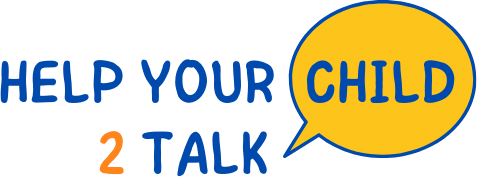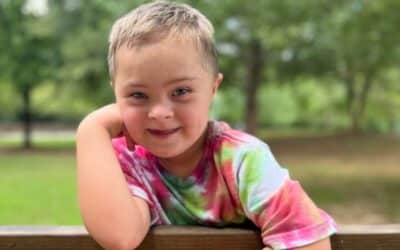Raising children is a rewarding yet challenging journey filled with countless questions. One of the terms often encountered, especially during early childhood, is “developmental milestone.” In this article, we will explain, “What are developmental milestones?” We will share basic speech-language developmental milestones associated with the first twelve years of life.
Understanding Developmental Milestones
Developmental milestones are specific benchmarks in development that most children achieve by a certain age. These milestones are markers that help evaluate a child’s growth in different areas of development. Keeping an eye on these milestones can assist parents and professionals in identifying any potential developmental delays or challenges at an early stage.
General Examples of Developmental Milestones at Varying Stages
Infancy (0-12 months)
- 1-3 months: Reacts to loud sounds, tracks moving items with eyes, and begins to smile.
- 4-7 months: Initiates babbling sounds, rolls over from stomach to back, and shows fascination with mirror reflections.
- 8-12 months: Might say “mama” or “dada,” sits without assistance, and may demonstrate separation anxiety.
Toddlerhood (1-3 years)
- 1-2 years: Starts walking, uses single words and a few simple phrases, and shows toy possessiveness.
- 2-3 years: Can follow simple directions, name several common objects, sort objects by shape and color, go up and down stairs independently, and take part in make-believe play.

Preschool (3-5 years)
- 3-4 years: Recognizes colors, interacts cooperatively with peers, and seeks more independence.
- 4-5 years: Can count up to ten items, communicates in full sentences, and starts grasping time concepts.

School Age (5-12 years)
- 5-7 years: Engages in conversation, reads basic sentences, cultivates a moral compass, and improves physical activity coordination.
- 8-12 years: Undertakes intricate problem-solving tasks, comprehends abstract notions, and nurtures stronger friendships.
Addressing Concerns & Seeking Support
If you have concerns about your child’s development based on their acquisition of milestones, it’s important to take proactive steps.

Early Intervention (EI)
Early Intervention is a program specifically for infants and toddlers exhibiting developmental delays or disabilities or at risk for delays. This initiative provides services to enhance development, including speech therapy, physical therapy, occupational therapy, behavior therapy, early development education, and more. Consult with your pediatrician for a referral or refer your child yourself to your state’s EI program. Private therapy outside of an early intervention program is also an option for services.
Therapy and Educational Resources
There are private and school-based therapies available for children who need these services. These include:
- Speech-Language Therapy: Helps address communication challenges.
- Occupational Therapy: Aids children in performing daily tasks, improving fine motor skills, self-regulating and processing sensory information.
- Physical Therapy: Focuses on enhancing gross motor abilities.
- Special Education Services: Tailored educational plans to meet unique learning styles and needs of individual children.
Always collaborate with professionals to determine the best course of action for your child.
FAQs
- Why are developmental milestones significant?
- They assist in evaluating whether a child’s development is consistent with their age, ensuring timely interventions if required.
- Do all children achieve their milestones at the same time?
- No, each child has a distinct developmental pace. There is a range of what is considered within normal limits.
- What actions should be taken if milestones aren’t met?
- Seek advice from your child’s pediatrician, speech-language pathologist, or other developmental specialists.
- Can the environment influence milestones?
- Yes, it can. Varied learning exposures, childhood stress and trauma, and other factors can impact child development.
Resources
- ASHA’s Developmental Milestones: Birth to 5 Years
- CDC’s Developmental Milestones | CDC
- Early-Stages-Milestones-EN-2011.pdf (aapdc.org)
Summary/Conclusion
Understanding what developmental milestones are and monitoring your child’s developmental milestones can provide valuable insights into your child’s growth, strengths, and possible areas of need. Always remember, every child is unique, requiring patience, understanding, and tailored support. If you have concerns about your child’s development, don’t hesitate to turn to developmental specialists such as speech-language pathologists for advice and guidance.




0 Comments